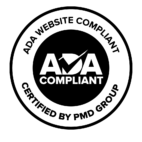Keeping an emergency fund is a very good idea. Unexpected things are always going to crop up whether it’s a car repair, unforeseen medical expenses or the sudden desire for a weekend away. Some people just stash cash in a cookie jar or under the mattress, but these are not the best places to keep money, for several reasons. Keeping emergency money in cash means that you are not earning any interest on your funds. In addition, if your home is burglarized or there is a flood or fire, your money is just gone and you have no recourse to recover it.
Ideas for Keeping Cash at Home
Luckily, you have options for taking care of your emergency savings. If you still want to keep your money at home, disguise is the way to go. If you have a fish tank that is large, get a waterproof, solid colored jar. To be on the safe side, put your money in a plastic baggie, then inside the jar and hide behind the tank filter or among the vegetation. You could also get a waterproof envelope and put the money inside and lay it on the bottom of the tank, under the gravel.
For book lovers, consider buying a “book safe” that looks like an ordinary book and can be concealed among others on the bookshelf but actually is a hiding place for money and valuables. Of course, you could also just go with a regular safe. To prevent a safe being stolen, consider purchasing a model that is very heavy and can be bolted to the floor.
Take your cash outside. If you have room, consider burying your emergency fund in a small lockbox in your yard or garden. Just don’t forget where you buried it! Also, put money in a plastic bag or wrap before putting it in the box for extra protection from the elements.
Savings Account
This is a classic way to store your money, and for good reason. Banks insure your funds up to a certain amount, and you are guaranteed to get at least what you put in back out when you want your money. Depending on the interest rate and how long you keep money in the account, you will probably get back more than what you put in. It’s simple to open a savings account, and you can link it to your checking account if desired.
Consider Making Investments
While possibly risky, investing in the stock market or in a business can also have larger payouts in the long run. Always speak to a financial advisor before investing large sums of money, however. You want to make sure you’re considering a wise investment to minimize the chances of losing your money.
Investment Savings Accounts
An alternative to a traditional savings account is an investment savings account. These accounts usually pay a higher interest rate than a regular savings account, but your money is still accessible to you. You can also write checks from an investment savings account if need be.
A Money Market Account
This is another type of savings account. Generally this will earn you a high rate of interest, which is a big positive. However, you will probably need to maintain a high minimum balance. If this isn’t a problem for you and you have enough to put into a money market account, it’s a great option.
Regardless of where you choose to keep your money, your financial health is the most important thing. We’d love to meet with you at one of our locations and discuss how you can grow financially. Contact us today!




